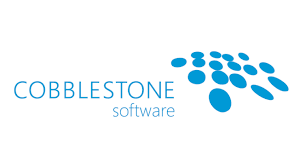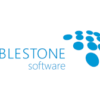
- Immortality (Indefinite Spans of Life)
- Ease (Liberation of Humans from the Need to Work)
- Gratification (a Positive Experience Granted by Machines)
- Dominance (The Power to Rule)
The researchers mentioned above even argue that these perceptions “can influence how [AI] is developed, deployed and regulated.”[1]
And…oh boy… artificial intelligence has been explored, alright…
The Utopian Business Value of AI
To explore how organizations can build a legal operations utopia with legal contract artificial intelligence, let’s explore the abovementioned overarching (albeit decidedly ideal) themes of an AI-based paradise as they apply to legal contract management processes: immortality, ease, gratification, and dominance.
Businesses across industries are already building their artificial intelligence utopias.
According to an MIT Sloan Management Review study, more than 80 percent of companies view AI as a strategic opportunity. Meanwhile, 85 percent of companies see AI as a competitive advantage. [2]
The artificial intelligence craze goes beyond simply viewing and pondering the hypothetical effects of an AI-based utopia. A collection of surveys from Harvard Business Review found that up to a third of large United States companies are already leveraging AI “quite aggressively” – with hundreds or even thousands of projects involving artificial intelligence currently underway for business process automation[3].
These AI-based projects are occurring in myriad departments of various industries.
Legal Contract AI – A Utopian Competitive Advantage
The statistics above align with legal professionals’ interest in building a legal operations paradise on a foundation of AI-based contract lifecycle management.
#1 – The Virtual Immortality of Contract Intelligence
One cannot say point-blank that legal contract artificial intelligence is entirely immortal. However, the virtual immortality of legal contract AI in terms of clause recognition should not be ignored. Contract intelligence built on a foundation of machine learning proves to be a nearly inextinguishable, utopian force.
Legal professionals can utilize machine learning that locates standard clauses within a contract when it is added into a CLM software system. That clause language can be sent to training data for machine learning to continuously improve future clause recognition! Contract AI can intelligently categorize clauses into an organization’s configured clause types while presenting a percentage of confidence in that contract clause categorization. That “confidence” can increase in perpetuity as long as new clauses are added to contract AI – making legal contract AI essentially impervious to process stagnation.
#2 – The Ease of Use of Legal Contract AI
The utopian ease of use of contract intelligence keeps organizations clamoring for more.
Legal ops professionals can drastically reduce the time needed to enter new contracts into contract management software. With legal contract artificial intelligence, organizations can watch as AI Identifies critical data such as contract types, effective dates, expiration dates, locations, contract statuses, assigned departments, names, confidentiality clauses, renewal information, and more – seamlessly mapping that data into tidied and organized user-defined and out-of-the-box fields. This contract data can be easily searched down to the level of phrases, terms, and words located within contract metadata, documents, and files. Data extraction processes can easily be edited and supplemented down to the field configuration level.
#3 – The Gratification of Statistical Data Analysis With Contract AI
Gratification can be defined as the satisfaction that results in the fulfillment of goals or desires. Regarding legal operations, contract management teams can enjoy fulfillment in achieving administrative goals with artificial intelligence tools that increase team accountability and help visualize success.
Contract administrators can analyze their teams’ usage of legal contract intelligence tools at a glance. A risk score can display a team’s percentage of risk tools used and provide insights into actions that can be taken to improve the risk score.
For example, “David’s” organization is only using 60 percent of its risk management tools. Furthermore, David’s organization’s AI-based contract lifecycle software system reveals that one of the factors contributing to this less-than-perfect score is a lack of proper time spent tracking contract approval status. In this case, David’s organization can adjust how it tracks approvals.
By addressing this recommendation and others provided by David’s organization’s system, David’s team can adjust goals and experience the gratification of seeing their risk score get closer and closer to one hundred percent with exponentially improved accountability and process improvement paradise!
#4 – Dominance of Legal Contract Risk Variables & Risk Exposure
The dominance of contract AI over methods involving emails, spreadsheets, shared drives, and lone contract repositories for risk management is not even close. Outdated risk management methods can lead to violation of compliance rules and regulations, contract failure, lawsuits, a ruined reputation, data leakage, and worse.
Legal contract AI dominates other risk management tools by allowing legal professionals to pinpoint potential risk by systematically analyzing contract text and identifying positive, negative, and neutral language based on a rules-based sentiment, which can be configured according to an organization’s needs. Legal teams can mitigate risk based on historical data and company goals without evaluating contracts one by one.
Another dominant feature of contract AI that positions it far ahead of obsolete risk management systems is visually engaging risk tools. A risk assessment matrix can map risk variables and exposure while providing suggestions and alerts for improved risk response. An OFAC search tool can present an eye-grabbing categorization of OFAC risk on a one-off and recurring scheduled basis for entities flagged in the national sanctions lists of the Office of Foreign Assets Control within the US Treasury Department.
Enter Your Legal Contract AI Paradise Today!
All the tools mentioned above are just a scratch at the surface of a legal contract AI experience that evokes immortality, ease, gratification, and dominance – to name a few. To learn more about legal contract intelligence with machine learning, book a free demo today!
[1] Cave, S., Dihal, K. Hopes and fears for intelligent machines in fiction and reality. Nat Mach Intell 1, 74–78 (2019).
[2] Enholm, I. M., Papagiannidis, E., Mikalef, P., & Krogstie, J. (2021). Artificial intelligence and business value: A literature review. Information Systems Frontiers, 1-26..
[3] Davenport, T. H., Brynjolfsson, E., McAfee, A., & Wilson, H. J. (2019). Artificial intelligence: The insights you need from Harvard business review. Harvard Business Press.


















